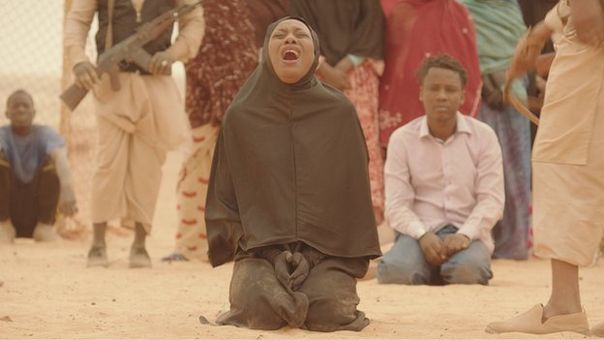Hard to watch, hard not to watch
Oris Aigbokhaevbolo of the Talent Press Durban 2014 reviews the beautiful, brutal but real drama TIMBUKTU.

Abdelrahman Sissako's TIMBUKTU
There is a beautifully shot scene in Abdelrahman Sissako's TIMBUKTU. A man has just shot another on the shores of a shallow river. As he walks across the river shuffling and dazed, his victim, trying to stand, stumbles and breathes his last. At the end of the scene, two figures—one standing, the other immobile in the water—are silhouetted against impending dusk on opposite sides of a river.
Both the killer, a cattle herder, and the victim, a fisherman, are people living under an oppressive Islamist regime. The Islamist leaders make whimsical pronouncements: no music, no smoking, no football—this last presents an opportunity for the filmmaker to show a remarkably imaginative scene of young men playing football without a ball. To escape the absurdity of the regime’s decrees, the people turn to the absurd. Those who cannot do that feel the necessity do it secretly. Others, like the aforementioned herder, humiliated but reluctant to flee his homeland with his family, takes out the claustrophobic frustration on a neighbor.
While in THE WRETCHED OF THE EARTH, Frantz Fannon may have written about "The starving peasant, outside the class system" believing "only violence pays" and that "colonization and decolonization is simply a question of relative strength," violence will not wait for a prescribed victim. The oppressed may attack the oppressed. Blood must out.
In Sissako's TIMBUKTU, as in life, violence begats violence: fisherman kills cow, cow owner kills fisherman. Then the oppressor, the remote cause of the violence, accords judgment. The cascade of events is unjust. And Sissako, purveyor of brutal reality, refuses to judge. And as the film slowly unravels towards a tragic ending, the director ought to be accused of cynicism. Sometimes, however, cynicism is just another word for reality.

